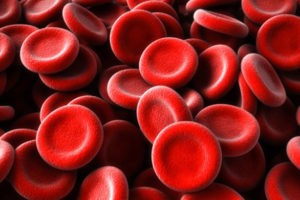Whether additional benefit can be achieved with the use of L-carnitine (L-C) in patients with chronic heart failure (CHF) remains controversial.
Full disclosure. I am a long-term survivor of an incurable blood cancer called multiple myeloma. While I have researched and written about cancer since the launch of PeopleBeatingCancer.org in 2004, I have been researching and writing about chronic heart failure (CHF) only since my diagnosis with atrial fibrillation in late 2010. I kicked my research and writing up several notches when I was diagnosed with chemotherapy-induced cardiomyopathy in January of 2019.

My experience with the conventional medical industry is that drugs prescribed by oncologists (cancer drs.) and cardiologists (heart drs.) can manage a health problem temporarily but rarely does the drug fix the health problem permanently. In fairness to conventional medicine, most people with health problems would rather take a pill than research non-toxic therapies, change their lifestyle, take supplements throughout the day, etc.
The therapies prescribed by my doctors brought a host of toxicites- short, long-term and late stage side effects. The obvious example is that the damage to my heart was caused by cardiotoxic chemotherapy regimens…
For example, chemotherapy and radiation can provide a temporary remission for my blood cancer only. I was prescribed both beta blockers and metoprolol for my heart disease. Both types of therapies are only temporary solutions to my problems.
My approach to heart health (chronic heart failure, cardiomyopathy, etc.) is the same as it has been with my approach to my blood cancer. And that is to research and employ evidence-based, non-toxic therapies that keep me as healthy as possible. Notice I didn’t use the word “cure.”
The study linked below talks about what I hope will be a permanent solution to weakness of my heart.

To learn more about evidence-based, non-toxic heart therapies such as l-carnitine, PQQ, CoQ10, diet, exercise, etc. scroll down the page, post a question or comment and I will reply to you ASAP.
Thank you,
David Emerson
- Cancer Survivor
- Cancer Coach
- Director PeopleBeatingCancer
Recommended Reading:
“A condition in which the heart has trouble pumping blood through the body. It may develop over a long period of time. Symptoms include shortness of breath, problems exercising, fatigue, and swelling of the feet, ankles, and abdomen. Chronic heart failure may be caused by coronary artery disease, a heart attack, or high blood pressure. It usually occurs in people aged 65 years or older. Also called CHF.”
“Background. Whether additional benefit can be achieved with the use of L-carnitine (L-C) in patients with chronic heart failure (CHF) remains controversial. We therefore performed a meta-analysis of randomized controlled trials (RCTs) to evaluate the effects of L-C treatment in CHF patients.
Methods. Pubmed, Ovid Embase, Web of Science, and Cochrane Library databases, Chinese National Knowledge Infrastructure (CNKI) database, Wanfang database, Chinese Biomedical (CBM) database, and Chinese Science and Technology Periodicals database (VIP) until September 30, 2016, were identified.
Studies that met the inclusion criteria were systematically evaluated by two reviewers independently.
Results. 17 RCTs with 1625 CHF patients were included in this analysis.
L-C treatment in CHF was associated with considerable improvement in overall efficacy:
- left ventricular ejection fraction (LVEF),
- strike volume (SV),
- cardiac output (CO), and
- E/A.
Moreover, treatment with L-C also resulted in significant decrease in serum levels of
- BNP,
- serum levels of NT-proBNP,
- LVESD,
- LVEDD, and
- LVESV.
However, there were no significant differences in all-cause mortality, 6-minute walk, and adverse events between L-C and control groups.
Conclusions. L-C treatment is effective for CHF patients in improving clinical symptoms and cardiac functions, decreasing serum levels of BNP and NT-proBNP. And it has a good tolerance.





